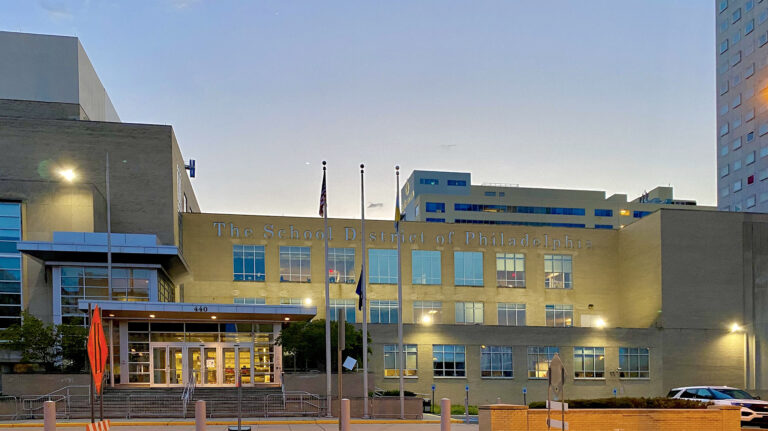This is Steve Ember with the VOA Special English Education Report.
Almost two years ago, a Pennsylvania State committee removed more than forty Philadelphia public schools from city control. The committee said it intervened because children attending the schools were learning very little. Private companies, universities and non-profit organizations began supervising these schools.
The Philadelphia school district has more than two-hundred-fourteen-thousand students. Most of them are from low-income families. It is the seventh largest school system in the nation. It has more than two-hundred-seventy schools. The district includes traditional schools and restructured ones. Some district schools operate by agreement between Philadelphia and outside supervisors. The district also has special schools that have programs on a single subject such as mathematics.
Philadelphia’s education chief, Paul Vallas, came to the city soon after the state intervened in the school system. Before that, Mister Vallas served as top administrator in the Chicago, Illinois public schools. He says society should place great importance on improving education for poor children.
Under his leadership, the percentage of Philadelphia students performing in the lowest twenty-five percent of the nation has decreased. Test scores have improved in reading, language arts, mathematics and science. Still, about sixty-six percent of Philadelphia public school children test below the national averages in such basic studies.
Mister Vallas has improved district finances. He cut a number of non-teaching positions. He renegotiated agreements with providers of school supplies. These actions provided money to hire new teachers and repair some school buildings. But the Philadelphia school district is far from rich. It has had to borrow money to operate on its budget of about one-point-eight-thousand-million dollars.
A recent report criticized Pennsylvania for its financing of education. The report was written by the publication Education Week and the Pew Charitable Trusts. The report said the state spends a large amount on education. But it blames Pennsylvania for depending mainly on local property taxes to operate school districts. It says poor school areas cannot raise as much tax money for education as rich areas.
This VOA Special English Education Report was written by Jerilyn Watson. This is Steve Ember.
